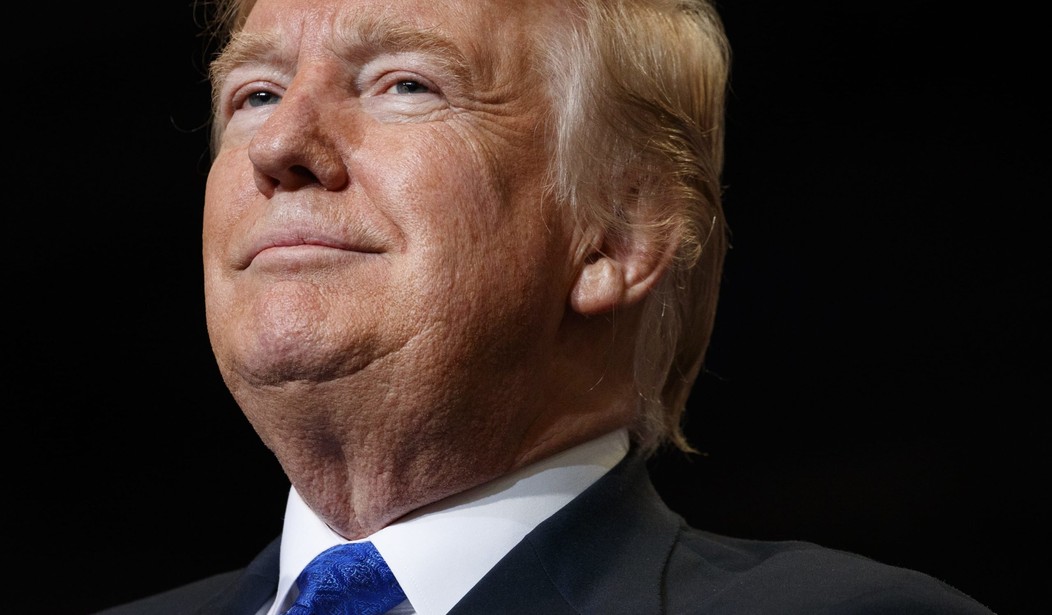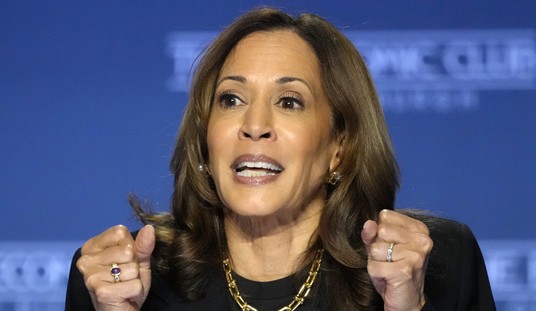Shortly after Education Secretary Betsy DeVos was confirmed, Kentucky Representative Thomas Massie introduced a bill to abolish the Department of Education. While this may be an excellent idea in theory, in practice it might not actually save children and parents from sky-high tuition, burdensome regulations, and botched federal programs like Common Core.
“The concept is terrific, but attention needs to be paid to what happens to the functions of the Department of Education,” Kevin Portteus, associate professor of politics at Hillsdale College, told PJ Media in an email statement. “It does no good to abolish the agency if the functions are simply spread around to other agencies of the federal government. The result must be real devolution of power.”
Lindsey Burke, director of education policy studies at the Heritage Foundation, agreed. “What happens to all of the programs? If we really want to think about limiting federal intervention in education, we’ve really got to think about the programs that are in place,” Burke told PJ Media. She mentioned that many federal education programs would continue to operate even if the department were eliminated.
Head Start, for example, a program which provides early childhood education, health, nutrition, and parental involvement services to low-income families with children, is housed at the Department of Health and Human Services. Burke estimated that the program costs $9 billion annually, and has racked up a $180 billion bill since 1965, when it was created. “It has had zero impact on the poor children,” Burke said.
As for the Common Core State Standards Initiative (commonly known as “Common Core”), while Burke said it was “bad policy … heavily incentivized by the federal government,” it is “wholly up to the states” to decide to exit the program. Because Common Core was adopted by the states, incentivized by federal funding, it must be abolished by the states.
Luckily for opponents of the program, the money used to incentivize adoption has “largely been spent,” so while there is little the federal government could do to end the initiative, there are no hard impediments or incentives against state-by-state rejections of Common Core.
As for the Department of Education, Burke argued that it has nothing to show for itself. “We’ve got 37 years of basically no impact, and one might argue that it’s had an impact that’s negative in a way,” the Heritage scholar argued. “We’ve had no improvement in educational attainment levels, particularly for disadvantaged children.” She pointed out that American children are not improving compared to children in other countries, and that graduation rates are not increasing, despite $2 trillion spent on education at the federal level.
“We’ve been spending a ton of taxpayer money for no results from the Department of Ed,” Burke concluded. “I think that there is a growing consensus, particularly among parents, that the Department of Ed has not really effected outcomes that are improving education locally.”
Neal McCluskey, director of the Center for Educational Freedom at the Cato Institute, agreed. He argued that 2017 provides a rare opportunity for consensus between the Left and the Right against the department.
“I think a lot of those people now have been sort of frightened about the U.S. Department of Education — I think it’s reached a head with the nomination and approval of Betsy DeVos,” McCluskey explained. Even liberals — who typically do not favor a decrease in the size and scope of government — are “now afraid the Department of Education will be used to promote other policies they don’t want.”
Parents and local educators have grown increasingly disenchanted with the federal education bureaucracy in recent years, the Cato scholar added. Even progressives on the Left disliked the standards and accountability-based reforms, and teachers unions have started to oppose such reforms, especially when it comes to evaluating teachers.
“We have more Left and Right confluence being worried about what the Department of Education has done and will do,” McClusky said. “Now is the best chance we’ve had in a while,” he said, but the Cato scholar admitted that “we’re not [yet] at the point where it will really happen.” At the very least, the bill to repeal the department would only have a chance of passing if it specifically explained how the programs would be dealt with.
The Cato scholar explained why Americans originally favored federal involvement in education: they wanted to equalize resources in schools across the country. But “equalizing resources didn’t have much impact on educational outcomes,” and now there is a growing “concern that the federal government will try to tell every school in America what they should teach.”
“Diverse people don’t agree on what their students should learn, who should teach it, and what they should be taught,” McClusky argued. There is a fundamental problem with “imposing uniform ideas on a society that is highly diverse.” Even worse, under President Obama the education system — which was already shifting from “a free society…toward a system where majority rule at the national level decides what every child be taught — started centralizing power in one person, the president. Obama’s unilateral actions, on Common Core, for instance, were supremely troubling.
But McClusky claimed that the federal government should not even prioritize school choice. He warned that “$20 billion to incentivize states to promote school choice…would be a dangerous thing.” It is arguable that almost everything the federal government does in education is unconstitutional, and “I don’t think it would be constitutional to have it suddenly promote school choice.”
Even pushing a positive change like school choice can be dangerous at the federal level because “you run the risk of imposing national uniformity on even private schools,” the Cato scholar argued. In areas where the federal government does influence education, however, McCluskey favored school choice initiatives. He argued that the Washington, D.C. voucher program falls under federal management, that the government should provide vouchers for military dependents, and that federal vouchers could promote school choice on native American reservations.
But the Cato scholar did favor some of the same concrete education reforms also advocated by Heritage’s Lindsey Burke. Both supported the A PLUS Act, which would block grant federal funding to the states, enabling them to use education money how they choose.
Burke also advocated for the elimination of competitive grant programs under the Every Student Succeeds Act (ESSA). She claimed that the current system requires local school districts to apply for a competitive grant to get their tax dollars back, and it requires heavily monitoring federal register notices. It is “a relatively burdensome process just to get a relatively small amount of money.”
Both Burke and McCluskey also favored cutting federal aid in higher education. Burke cited a 2015 report by a Federal Reserve Bank in New York which found that for every dollar of federal aid, universities increase tuition by 63 cents. McCluskey noted that “federal student aid has primarily translated into higher prices … it’s created a kind of vicious circle,” while “adult literacy assessments have shown decreased literacy among degree holders,” and “the average student spends less time studying.”
Eliminating these particular programs, and drastically cutting the federal government’s role in education may not be a panacea, however. Portteus, the Hillsdale professor, cautioned that “any action of this kind is bound to be a bit of a bumpy ride at first.”
Even if Congress, President Donald Trump, or Secretary DeVos were able to free education from the bureaucracy of Washington, D.C., “pervasive federal control of education over a period of decades means that the American people have largely lost the habit of self-government when it comes to education.”
“They will have to re-learn that habit, and it won’t be easy, because we are accustomed to being dictated to by the federal government,” Portteus concluded. “We’ll have to learn how to make decisions that the federal government has been making for us. We’ll have to re-develop the institutions that facilitate self-government. For a while at least, it will be a shock, and it won’t always be pretty.”
But Portteus, Burke, and McCluskey all agreed on one thing — freedom and local control in education is worth the inevitable shocks and growing pains associated with breaking the federal government’s vice grip over education, and there is more promise than ever before that this kind of reform is possible.









Join the conversation as a VIP Member